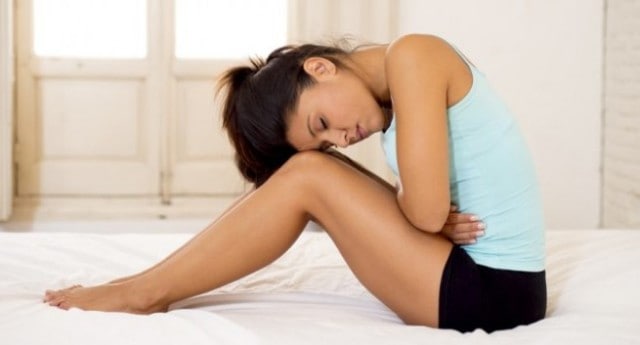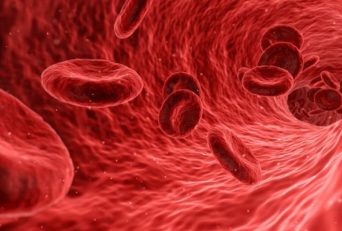Many women might be experiencing cramping after ovulation. In the following article, we will know all about this.
Table of Contents
What Is Ovulation?
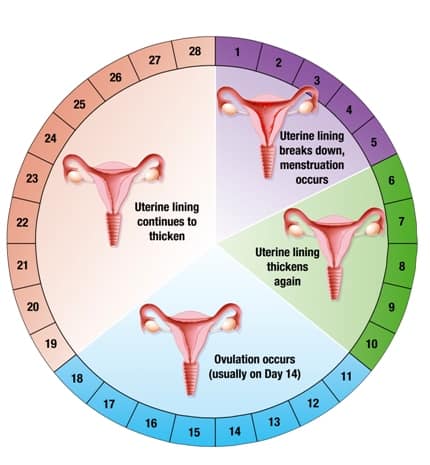
‘Ovulation’ is a part of the female menstrual cycle. Ovulation is a process when a mature egg is released from the female sex organ ‘ovaries’ and is pushed towards the fallopian tube for fertilization.
During ovulation, the ovum is released at moment. The ovum has a lifespan of 24 hours. However, during ovulation, one can get pregnant up to 5 days as sperm tends to live long.
Ovulation is likely to happen midway on your menstrual cycle. It can last for one or two days. For some women, it is normal to experience cramping before, during, and after this process. Cramping is a painful experience on one side of the lower abdomen.
Ovulation occurs once a month in women until menopause. Ovulation ceases when a woman is pregnant or breastfeeding.
Is Cramping After Ovulation Normal?
Cramping or simply cramps can be defined as a sensation of pulling felt by women on one or both sides of their abdomen.
Cramping after Ovulation is a normal situation. The pain experience varies from woman to woman. Some women might experience less pain while other women can experience an excruciating pain.
Ovulation pain can last for few minutes to few days. For some women, the pain can last from few minutes to few hours while for other women, the pain can last up to days. For some women, the cramps can be mistaken as appendicitis because of the extreme pain.
The variation of pain experienced in different women is normal and there is no explanation of these discrepancies in science. It is believed that genetic differences can be the major reason behind this. However, the pain stops on its own at menopause.
Cramping after ovulation can be a sign of fertilization of the ovum. It is likely to happen in about 20% of the women. Usually, it is a sign of pregnancy. Although, not all women experience pain during fertilization and still they get pregnant.
Sign Of Ovulation Cramping During Or After Ovulation
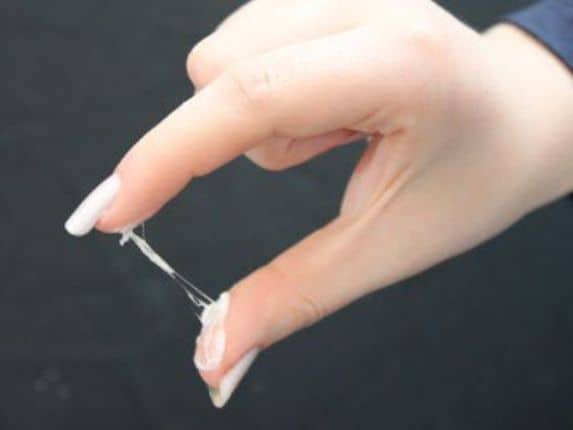
Cramps are likely to happen during ovulation or after the ovaries have released an ovum. In most of the women, there are signs of ovulation during or just before they ovulate. However, some women may not experience any symptoms. The signs are –
1. Cervical Fluid
When you are closer to ovulate there is a change in cervical fluid especially one similar to ‘egg whites’.
2. Change In Body Temperature
There is a slight decrease in body temperature just before the ovulation starts. However, there is an increase in body temperature during ovulation takes place.
3. Cervical Changes
A change in the cervix is noticed. During ovulation, many women tend to have a soft and wet cervix.
These are the main signs of ovulation before or after women ovulate.
There are other post ovulation sign and symptoms that may not be common –
4. Abdominal bloating because of increased water retention
5. Cramps on one side of the abdomen
6. Breast tenderness
7. Slight bleeding or discharge accompanied by slight blood
8. Increased sensitivity towards smell, taste, or vision
9. Increase in desire to have sexual intercourse
10.Vulva becomes sensitive and swollen
Why Do You Have Severe Or Mild Cramping After Ovulation?
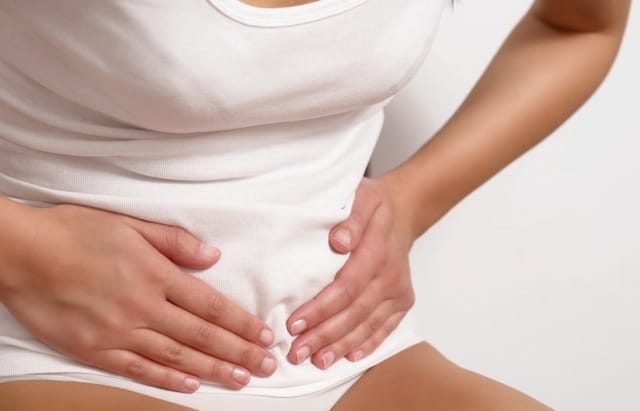
Ovulation is followed up by stomach cramps. There is no precise cause of period like cramps after or during ovulation. But, there are certain theories that can hold true for the cause of abdominal pain and cramping during ovulation.
1. Rupturing Of Follicle And Breaking Of The Ovary
The mature ovum is released by breaking follicle. This can cause light bleeding. This process of rupturing of follicle and breaking of the ovary can cause cramps in the lower abdomen.
2. Ovary Surface Stretching
Cramps can also be caused because of stretching of the surface of the ovary as follicle grows. Hormones make the ovary to produce around 20 follicles with an immature egg in each of them.
Out of 20 follicles, only one will survive to reach full maturity. Therefore ovulation pain can also be caused by the stretching of the membrane of the ovary because of the expanding follicle.
3. Fallopian Tube And Uterus Spasm
You might experience mild cramp after ovulation because of the spasms in the fallopian tube that forces the ovum from the fallopian tube after 12-24 hours for implantation if it fertilized.
If it is not fertilized then it is disintegrated and is shed off through your menstrual cycle.
4. Releasing Of Blood Or Mucus During Rupture
During ovulation, some fluid, and some blood is released from the ovary as it raptures. This may irritate the lining of the abdominal cavity and can cause pain. This can also cause discharge with some amount of blood.
5. Ovarian Cysts
The cysts are found in or on the surface of an ovary. If there is a formation of large cysts then it can cause back pain and lower abdominal pain. It is a common cause of cramping after ovulation in non-pregnant women.
6. Chronic Pelvic Inflammatory Disease
It is an infection of the pelvic organ of females which includes the uterus, ovaries, cervix and fallopian tube. This disease is caused by sexual transmission. It can be a result of engaging in sexual practice with multiple sex partners.
7. Endometriosis
It is a medical condition in which endometrium grows outside the womb in another location like the peritoneal and the bowels.
If you are experiencing cramping after ovulation but the pregnancy test is negative then you must consult a doctor as it can be treated by a physician.
8. Salpingitis
It is a medical condition in which the fallopian tubes are infected and swelled. Lower abdominal pain is the primary symptom of this affection.
9. Constipation After Ovulation
About 2% of women experience constipation 7 -10 days after ovulation. Progesterone hormone can trigger a slow bowel movement. Constipation can cause mild cramping after ovulation or pain in lower abdomen. These can be a common symptom of pregnancy in women.
To Avoid Constipation You Should
- Drink plenty of water
- Do exercise and yoga regularly
- Eat small meals regularly
- Eat food with high fiber content
- Do not ignore the urge to use washroom
Since the actual cause of cramps after ovulation is not known yet so, there can be other causes too. Beside ovulation and PMS, there can other health conditions that can cause cramps as after ovulation. These health conditions can be –
- Sexually Transmitted Diseases
- Pelvic infection from different procedures
- Mucus congestion in fallopian tubes
- Bruising caused during ovulation
- Adhesions from past surgeries
- Fallopian tube muscle contraction
- Irritation in the abdominal lining
Cramping Days After Ovulation
Usually, Cramping due to ovulation lasts up to two days. But if the pain lasts long then it is advised to visit a doctor because it could be associated with other health problems like appendicitis, ovarian cysts, or ectopic pregnancy.
The magnitude of cramps experienced can vary from women to women. In most of the cases, the signs and symptoms of post ovulation have no serious threat to a woman’s health. However, pain along with cramps symptoms can also be a sign of pregnancy.
Let us see the details of cramping when it goes up to one week.
1. Cramping One Day After Ovulation
Cramping after ovulation is normal for a day or two. Some women experience abdominal pain accompanied by ovulation and it may last for just a moment or sometimes, a dull and itchy feeling can last from several hours to two days.
Around 6% of women in childbearing age experience pain for cramping. From that percentage of women, 2/3 is usually pregnant and 1/3 is not pregnant
2. Cramping Two Days After Ovulation
As discussed already, experiencing cramping after ovulation is normal for two days. Around 7% of women, experience cramps two days after ovulation. From that percentage of women, 4.5% is usually pregnant.
But if you are on Clomid, there might be some side effects. Clomid causes abdominal pain and stomach upsets.
3. Cramping Three Days After Ovulation
Cramping three days after ovulation may not be a sign of pregnancy. Because implantation cramping could start much later. Around 9% of women can experience cramping three days after ovulation. Of which 6% percent of women are pregnant.
Cramping three days after ovulation can occur due to physiological differences like ruptured membrane may still be healing or fluid responsible for irritation can take a time to get absorbed
4. Cramping Four Days After Ovulation
If abdominal pain or cramps four days after ovulation are accompanied by vomiting, vomiting blood, feeling faint or dizzy, blood in stool, increased pain, high fever, swollen abdomen, pain while urinating, and difficulty in breathing then it is advised to visit a doctor immediately.
Around 10% of women can experience cramping four days after ovulation. Of which 6.5% percent of women are pregnant.
5. Cramping Five Days After Ovulation
If you still experience cramps after five days of ovulation then it could be a sign of an early implantation, side effects of Clomid, or other underlying problem.
Around 12% of women can experience cramping five days after ovulation. Of which 7.5% percent of women are pregnant.
6. Cramping Six Days After Ovulation
If you still experience cramps after six days of ovulation then it could be a sign of an implantation if fertilization has happened. The cramps are generally implantation cramps.
Around 15% of women can experience cramping six days after ovulation. Of which 10% percent of women are pregnant.
7. Cramping Seven Days After Ovulation
It sounds quite unusual but it is plausible to be cramping seven days after ovulation. Around 16.5% of women can experience cramping six days after ovulation. Of which 11% percent of women are pregnant.
For women having shorter menstrual cycles, cramps a week after ovulation could be PMS setting. Women often confuse it with having post ovulation cramps.
Moreover, if you are having an implantation cramps then it means you are pregnant.
Is Cramping After Ovulation A Sign Of Pregnancy?
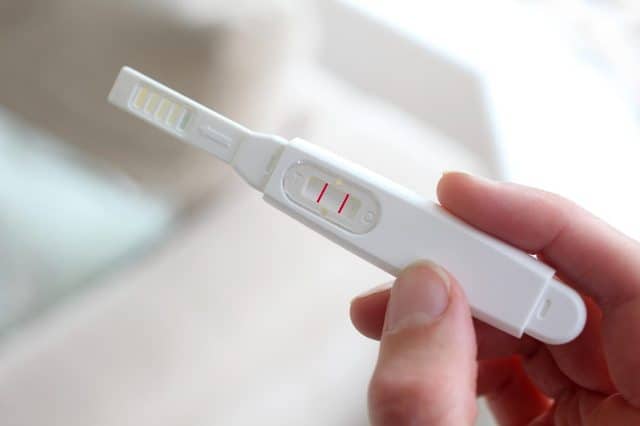
Cramping might just not be a symptom of Premenstrual Syndrome (PMS) but can also be a sign of an early pregnancy. It can happen few days after fertilization or anywhere from six to twelve days after the egg is fertilized. However, you are most likely to be pregnant at any time around the ovulation.
Most women often confuse the cramping as a sign of PMS while it is a sign of pregnancy. If the cramping is because of conception then it usually starts from the 5th or 6th day from the ovulation time.
Some women may experience other symptoms like breast tenderness, back pain, fatigue, bloating, white discharge, etc. The white discharge may be because of the thickening of the vaginal walls.
If you are trying to conceive then you should not decide to cramp after ovulation as a sign of pregnancy. Even if the cramping is accompanied by other symptoms as mentioned earlier there might be a chance that you are not pregnant.
In 30% of pregnancies, light bleeding or spotting is likely to occur. Spotting is very light and it generally occurs 6-12 days after conception. Once the egg is fertilized, it will burrow itself into the lining of the uterus. This causes some uterus lining to shed. The blood usually appears pink or light brown in color.
Some women experience similar symptoms just before their menstrual cycle as part of their Premenstrual syndrome (PMS). As a matter of fact, many women experience these symptoms but they are not pregnant.
Is Pregnancy Test Necessary?
If you are experiencing cramping right after your menstrual cycle then it is unlikely for you to be pregnant although, it is not impossible. In this case, cramping is likely to be caused by ovulation.
The most obvious signs of ovulation are an appearance of long, white sticky mucus. There is also an increase in your basal body temperature by 0.4 degrees.
However, it the cramping occurs 6-12 days after ovulation, then it might be a sign of an implantation. The cramps due to implantation will only last for few hours to few days.
But, if the cramps are continued and accompanied by bleeding then it must be a sign of PMS. If you are experiencing heavy bleeding then must visit a doctor as it can be a sign of underlying health problem.
Implantation cramping cannot always be a common symptom of early pregnancy. Only a pregnancy test can confirm whether you are pregnant or not. If the cramping is associated with other pregnancy symptoms and light spotting then it might be a sign of pregnancy.
In early stages of pregnancy, you may also experience other symptoms like mood swings, fatigue, nausea, food cravings and frequent urination.
A missed period is one of the first certain symptoms of pregnancy. If you are experiencing these symptoms then visit a doctor soon to confirm your pregnancy.
How Long Does Cramping After Ovulation Last?
As discussed earlier, cramping after ovulation usually lasts for few minutes to few hours or for few days also. However, if the conception has taken place then cramping is likely to last for a week.
Does Clomid Cause Cramping After Ovulation?
Clomid is an ovulatory stimulating medication often prescribed to treat women with ovulatory dysfunction. It helps in increasing hormones responsible for the growth of ovum to mature and release.
If you are on Clomid then it is easy to assume that you are pregnant. Symptoms of post ovulation or PMS are seen while on Clomid. The pain caused by taking Clomid is due to overstimulation of the follicles and these cramps are likely to last from few days to several days depending on different women.
There Are Many Side Effects Of Clomid
- A headache and dizziness
- Bloating
- Nausea
- Stomach upsets
- Thinning of the uterus lining
- Blurred vision
- Diarrhoea
- Breast tenderness
- Abdominal bleeding
- Hot flashes
- Cyst formation on ovaries
- Low fertility because of production of cervical mucus
Some women may experience excruciating pain in lower abdomen or post ovulation symptoms or premenstrual symptoms. Actually, sometimes you might not be having pregnancy symptoms.
Abdominal Cramping But No Period
Sometimes women can experience abdominal cramping in absence of periods. This can be some issue that women often ignore. Besides ovulation cramps, ‘abdominal cramping but no period’ symptoms could be due to –
- Formation of cyst around ovaries
- Ovarian cancer
- Eating disorder
- Endometriosis
- Cervical Stenosis
- Ectopic pregnancy
There might be some other reasons for the same so it is better to consult a doctor when the symptoms are observed.
How To Deal With Cramping After Ovulation?
If you are having mild cramps after ovulation then you usually don’t need any special medication. You can ignore them as they will go away within few minutes or hours. But if the pain is severe and unbearable then you can try –
1.Taking Painkillers
If the pain lasts for many hours or days or if there is an increase in the intensity of the pain then you can take a painkiller like Ibuprofen, Diclofenac, Naproxen or Aspirin to ease the pain.
2. Birth Control Pills
If the pain is severe then you can try using birth control pills like Oral contraceptive pills. These pills will help you to stop ovulating. Once ovulation is successfully stopped then the pain is controlled eventually.
3. Apply Warm Compress
The other way to relieve pain is by applying heated pad to the pelvic area. This will improve the blood circulation to the area and will relax down the muscles thus reducing pain. You can also take a warm bath to ease the pain.
4. Use Cold Compress
If warm compress fails to work, then try using cold compress instead. Some women have confirmed that cold compress is very useful in the easing pain.
Conclusion
Cramping after ovulation is a normal phenomenon seen in a number of women. Now that you have read detailed information regarding the ovulation cramps you can live a normal life without taking any stress.
There are few things you can do when these cramps occur. Some of which include taking rest, using warm or cold compress, taking a painkiller or contraceptive pills. If the symptoms are persistent then you should consult a doctor immediately.

